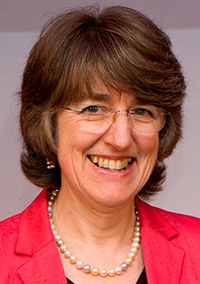 A crossbench peer is to argue on Friday in the House of Lords that the High Court alone should decide whether a terminally ill patient can end their own life early.
A crossbench peer is to argue on Friday in the House of Lords that the High Court alone should decide whether a terminally ill patient can end their own life early.
Baroness Ilora Finlay, who is a professor of palliative medicine, will table an amendment to Lord Falconer’s Assisted Dying Bill that seeks to remove doctors from the decision-making process if assisted suicide were to be made legal, and have each case decided by the courts.
On Friday, the House of Lords is to examine the proposed legislation for a second time and debate a series of amendments, including that from Baroness Finlay, an opponent of the bill who seeks stronger supervision over the decision to end someone’s life.
An amendment from Lord Pannick, which allows some involvement of the courts in the decision-making, has already been accepted, but there is concern that it still leaves doctors with too much involvement in the process.
The Falconer bill initially proposed that a terminally ill person over the age of 18 could be prescribed a lethal dose of drugs if they signed a statement saying they wish to die. Two doctors would then have to sign a legal declaration saying they were satisfied the person had less than six months to live, had mental capacity and was not being coerced. Lord Pannick’s amendment says a judge would also have to be satisfied.
Last week, the Association for Palliative Medicine of Great Britain and Ireland, which represents more than 1,000 doctors, wrote a letter to a supporter of the bill calling for doctors to be removed from decision-making in cases of assisted suicide.


 Loading ...
Loading ...